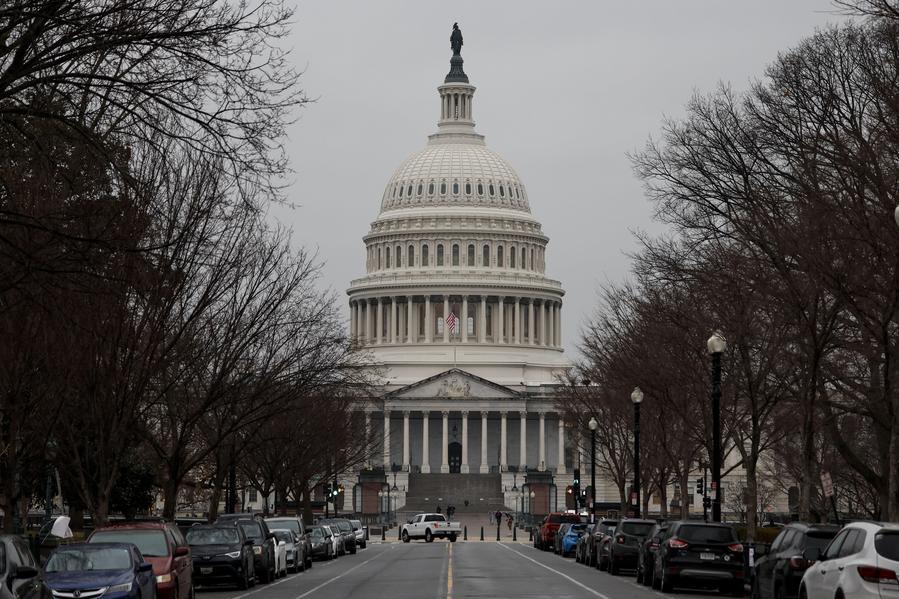More US curbs undermine global trade order


Officials in the United States have recently become increasingly concerned that investments by the country's venture capital firms in China's high-tech sectors, such as artificial intelligence, semiconductors and quantum computing, are helping the Chinese government develop emerging and critical technologies that could be used to undermine US national security.
Accordingly, these political elites have begun to restrict and hinder such cross-border capital inflows through "trumped-up charges" on normal investment and trade activities, which clearly run counter to US statements that it does not want to "decouple" from China.
Over the past few months, the US has been ramping up investigation of its VC firms' investments in Chinese high-tech firms, with its president signing an executive order restricting such investments under the pretext of defending national security.
These moves are a clear manifestation of the US' pan-securitization and pan-politicization mindset. They undermine the international economic and trade order and could lead to a reversal of globalization.
Probe into investments
On July 18, the US House Select Committee on the Strategic Competition Between the US and China sent letters to four well-known US venture capital firms — GGV Capital, GSR Ventures, Walden International and Qualcomm Ventures — expressing serious concern about their investments in China's AI, semiconductor and quantum computing sectors.
The committee also required these firms to provide detailed information about their investments — including a list of projects and amounts, decision-making processes, risks and the holdings of China's State-owned shares in these projects — for investigation and security assessment.
In the letters, the committee illogically asserted that all investments in China's high-tech sectors will contribute to its "human rights abuses" and military capabilities, regardless of whether the companies receiving investments had ever collaborated with the Chinese government or its military.
In February, the Center for Security and Emerging Technology at Georgetown University released a report on US investments in China's AI sector. According to the report, 167 US investors participated in 401 investment transactions targeting Chinese AI companies between 2015 and 2021. It also provided a list of the top 10 investors, which included the four firms warned by the committee.
Crimping capital flows
On Aug 9, US President Joe Biden signed an executive order establishing an outbound investment review mechanism led by the US Department of the Treasury to restrict or prohibit US capital from investing in China's semiconductor, microelectronics, quantum computing and AI sectors.
According to the order, the sensitive technologies and products in these sectors can pose an acute threat to US national security, and investments from the US will help China accelerate its development of these sectors.
Therefore, the order stipulates that all US entities involved in such investment transactions must report them to the Treasury and the transactions will be prohibited immediately once proven to be a threat to national security.
Currently, the order does not require the Treasury to conduct an ex-ante review and approval of relevant transactions, but rather grants it the power to step in and review the transactions and to intervene in them after the fact, based on corporate declarations.
For transactions violating the order, the Treasury has the right to restore them to the original status by forcibly canceling transactions and divesting shares, and to punish relevant entities through heavy fines and other measures.
Response strategies
Currently, there is a strong possibility that the US will further expand and even abuse the "national security" concept to stop its VC firms' investments and cooperation in China's high-tech sectors, even involving some projects already underway.
Although the executive order claims that it only restricts investments in a "narrow set of technologies" that are most likely to threaten US national security, the order and relevant US investigations will still inevitably have a negative impact, including spillovers, on all the cross-border investments in China.
Against such a backdrop, China needs to pay close attention to and comprehensively analyze the possible compliance risks brought on by these decisions and could consider responding from three aspects.
First, it needs to stay rational and understand relevant rules from a practical perspective. China can manage possible risks effectively and reintegrate its global value chains by adjusting investment plans and business strategies, eventually realizing the goal of making breakthroughs without undermining what it has already achieved.
Second, when faced with unfair treatment, China should make full use of international rules and follow internationally accepted practices to safeguard its interests, improve its competitiveness and win the world's trust, understanding and respect.
Third, to better attract and retain foreign investors, China must strive to provide a more market-oriented, law-based and internationalized business environment, and focus on enhancing mutual trust in cross-border investment transactions, especially among the private sector entities.
The writer is a professor at the School of Economics and Management, the Civil Aviation University of China.
The views do not necessarily reflect those of China Daily.
- Thucydides' Trap not an inevitability as long as both sides handle ties with vision and wisdom: China Daily editorial
- Appeal of wedding ceremonies declining
- Experts: China prudent about rate cuts
- US Fed's Interest Rate Decision Sparks Controversy
- Inter-ministerial meeting held on pangolin protection



































